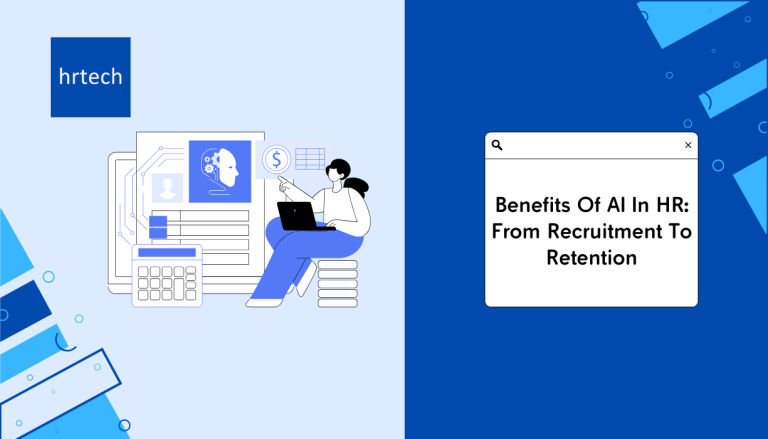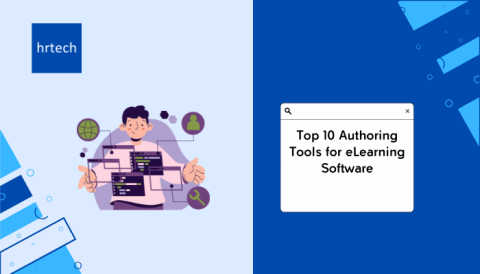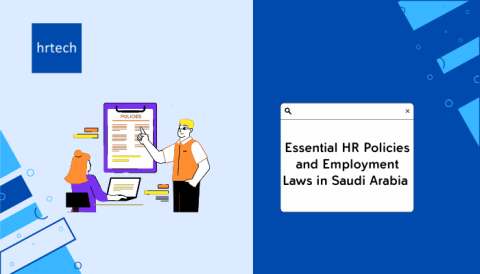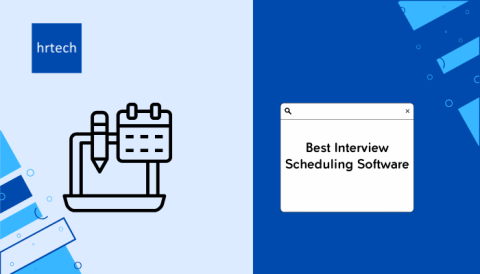AI makes learning tracks just for employees. This helps keep employees interested and lets them learn in the way that’s best for them. This means better training programs and employees who feel more confident and able to do their jobs.
AI learning platforms also give quick feedback and use data to help HR teams make their training better. This keeps employees learning and happy at work.
The benefits of AI in HR extend to employee development and retention, areas critical for maintaining a skilled and motivated workforce.
- AI-driven employee training: Personalized learning experiences are possible with AI. It can suggest relevant courses and materials, adapting to an employee’s learning style and progress. This personal touch keeps employees engaged and helps them grow in their roles.
- Monitoring employee engagement: AI tools can analyze data from employee interactions and computer usage to gauge engagement levels. By identifying patterns, HR can intervene early to retain valuable staff, ensuring a more stable and productive work environment.
Benefits of AI in HR are particularly evident in administrative efficiency:
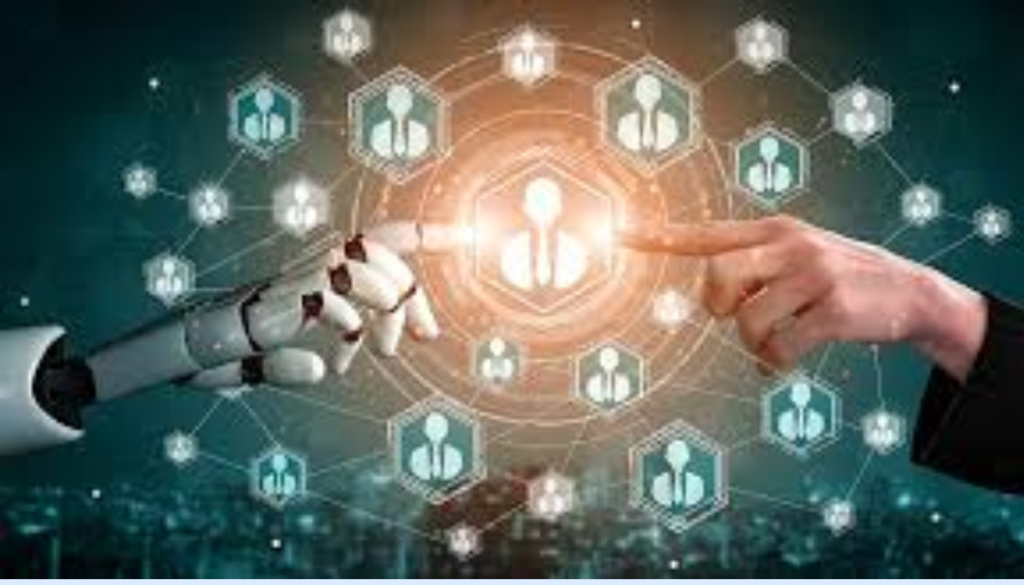
- Automating HR tasks: AI can handle scheduling, payroll, and benefits management. This allows HR staff to shift from routine tasks to strategic activities that benefit the organization’s growth and culture.
- Enhanced decision-making: AI provides insights from HR data, helping leaders make informed decisions. This can lead to better workforce planning and policy development.
The benefits of AI in HR suggest a future where HR professionals can focus more on strategic planning and less on administrative tasks.
- AI’s predictive capabilities: Beyond streamlining current processes, AI’s predictive analytics can forecast future trends in employee behavior and workforce needs, allowing HR to address issues proactively.
- Continuous improvement: As AI technology evolves, so will its applications in HR. This means ongoing enhancements in how HR serves employees and the organization.
AI in HR is not just a trend; it’s a transformative tool that’s reshaping the future of work, offering significant benefits and opportunities for innovation in human resources management.
Implementing Customized Learning Through AI:
AI helps make employee training better by focusing on what each person needs. It looks at what employees are good at and what they want to achieve in their careers. With AI, companies can figure out where employees need more help and make special training for those areas. This makes learning more useful and interesting for employees.
SAP SuccessFactors is an example of AI in HR. It has tools for managing and teaching employees. It uses AI to help HR teams understand why employees might want to leave by looking at things like job happiness and chances to grow. AI helps HR to see problems early and fix them to keep employees happy and involved.
AI makes learning tracks just for employees. This helps keep employees interested and lets them learn in the way that’s best for them. This means better training programs and employees who feel more confident and able to do their jobs.
AI learning platforms also give quick feedback and use data to help HR teams make their training better. This keeps employees learning and happy at work.
Enhancing Employee Engagement Using AI:
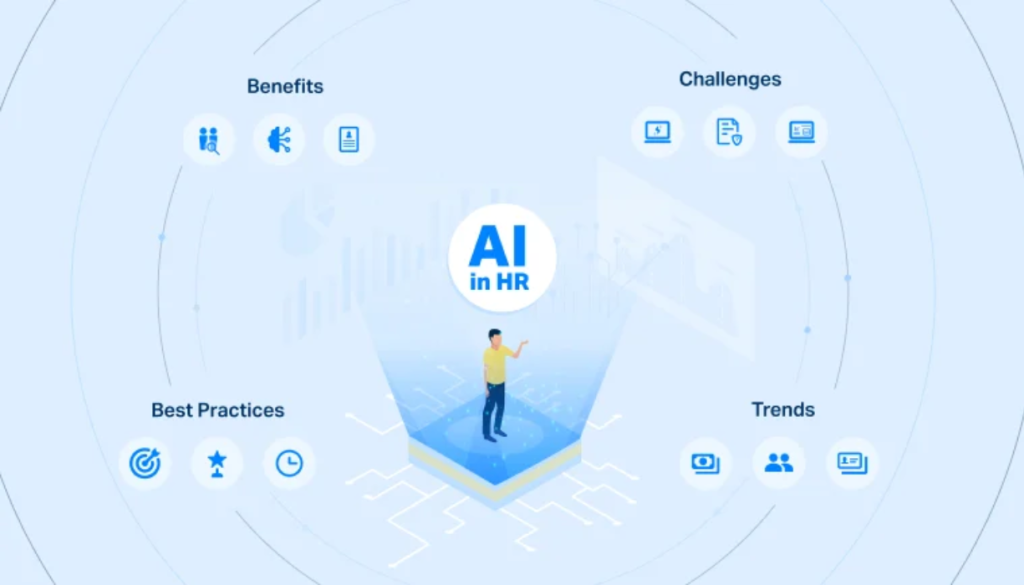
AI is changing HR by making employees more engaged and happy at work. Here’s how AI does this:
- AI chatbots help employees any time, day or night. Employees don’t have to wait for HR to be open. They get help right away, which makes them happier with their job.
- An AI tool called UltiPro Perception from Ultimate Software makes employee engagement better. It gives people personalized experiences and lets them give feedback right away.
- AI helps companies make choices based on data. This makes the workforce work better.
- AI helps HR look ahead. It spots patterns and trends and can guess what staff a company will need in the future.
This means companies can get ready for what’s coming and make smart plans for their employees.
Promoting Diversity with AI- Reducing Bias and Increasing Inclusion:
AI helps HR make fairer choices. It uses data, not opinions, to decide. AI speeds up hiring. It helps employers ask good questions and understand employee data. This can show if some people are left out or not getting promoted, which helps make things fairer.
Machine learning changes how diverse and inclusive a workplace is. AI tools in hiring can spot unfair patterns and make sure everyone has the same chances to grow.
AI checks for discrimination. It can look at what employees say in a detailed way, not just scores from a survey. This helps companies understand their employees better and find unfair patterns.
AI helps make sure all kinds of people get a fair chance from the start to the end of their time at a company. It helps write job ads that welcome everyone and find people from groups that don’t have many chances.
Using AI instead of people to review candidates helps get more different kinds of people hired and makes the workplace fairer.
Conclusion:
Artificial intelligence is changing HR in big ways. It helps with picking the right job candidates and taking away unfairness in hiring. It uses smart algorithms to look at resumes and pick people based on what they can do.
AI makes training better by setting up programs that fit what each employee needs. These programs keep employees interested and help them learn more. After training, AI figures out why people might leave their job and helps fix those issues before they become big problems.
AI chatbots help employees anytime they need it, which makes their work life better and keeps them happier.
AI tools look at data to help companies plan better for what kind of employees they’ll need. AI also makes sure everyone has a fair chance at work, no matter who they are or where they come from.
We at hrtech talk a lot about how AI helps HR. AI is what’s happening now in HR, and using it is key for business success.Want to know more about how AI is changing HR? Check out our other hrtech blogs for all the details on AI and HR. Are you ready to use AI in your HR work?
